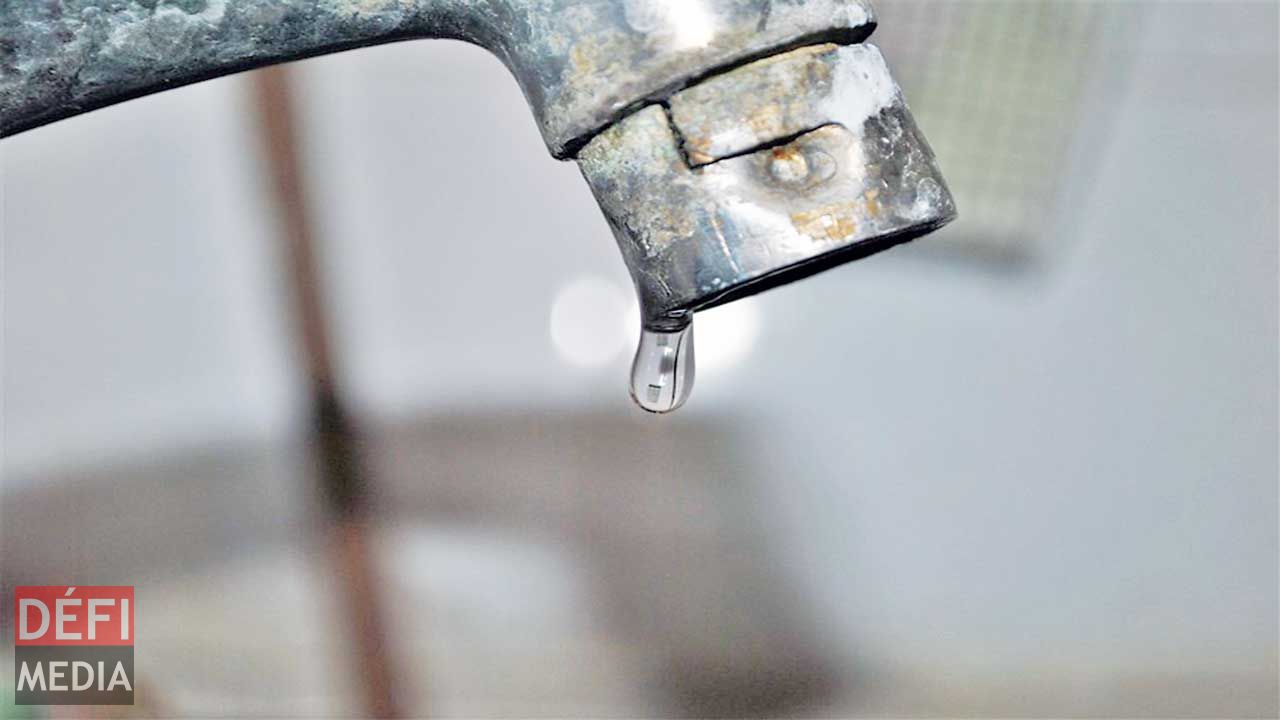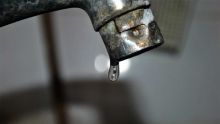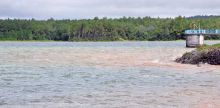
Water! It is one of the most abundant natural resources on earth. However, having access to it remains one of the most pressing issues facing world governments. On March 22, World Water Day was celebrated as a means of focusing attention on the importance of freshwater and advocating for the sustainable management of freshwater resources.
Publicité
An international day to celebrate freshwater was recommended at the 1992 United Nations Conference on Environment and Development (UNCED). The theme for this year is “Water and Wastewater”. The main objective is to question people about wastage of this precious resource and provides an opportunity to consolidate and build upon previous editions of this event. This year's World Water Day aims to highlight the symbiosis between water and wastewater in the quest for sustainable development.
 During the last electoral campaign, the Lepep Alliance promised that once in power, the population would have a 24/7 access to drinking water. But two years later, water cuts are a daily occurrence. Former director of Central Water Authority (CWA), Harrykrishna Booluck argues that such a promise will never be met. “Our reservoirs are not always 100 per cent full. Mauritius does not have heavy rainfall often. We usually get heavy rains in summer but the precipitation decreases from April to September. This leads to a situation whereby the level of water in our reservoirs decreases while usage remains the same. In this context, it becomes important for decreasing the usage of water,” he says.
During the last electoral campaign, the Lepep Alliance promised that once in power, the population would have a 24/7 access to drinking water. But two years later, water cuts are a daily occurrence. Former director of Central Water Authority (CWA), Harrykrishna Booluck argues that such a promise will never be met. “Our reservoirs are not always 100 per cent full. Mauritius does not have heavy rainfall often. We usually get heavy rains in summer but the precipitation decreases from April to September. This leads to a situation whereby the level of water in our reservoirs decreases while usage remains the same. In this context, it becomes important for decreasing the usage of water,” he says.
In December 2016, Deputy Prime Minister and Minister of Energy and Public Utilities, Mr Ivan Collendavelloo, in his reply to a question in Parliament, stated that the privatisation of the CWA was on the government's agenda. The Minister affirmed that he has sought the assistance of the World Bank for recommendations. “They are in Mauritius currently and we expect the report to be available [...]. I will urge a public debate on the whole matter with the tabling of the report of the World Bank.”
Harrykrishna Booluck stated that it is unacceptable for Mauritius to go for privatisation. “There should be a complete diagnostic of the CWA. Many African countries had opted for privatisation and then regretted it. Mauritius already has competencies and intelligence in the field, then why not find solutions here itself. With privatisation, there is no guarantee that the population will benefit a supply of 24/7. Besides, we cannot ignore what would be the conditions of the company as well. Even if we go for privatisation and find ourselves in difficulty, how will we get our entity back,” he adds.
Climate change impacts
According to the Mauritius Meteorological Services (MMS), the amount and availability of water is strongly influenced by climate variability and change. This is why, as the MMS underlines, seasonal climate outlooks and other climate services and products are vital for water resource management.
According to observations made in various parts of the world, the actual trend is that population growth, urbanisation, and soaring industrial and agricultural use have increased demand for this precious and limited natural resource. The MMS highlights that freshwater level is increasingly strained in various areas globally and trusts that we will be bound to observe the same situation in Mauritius, if appropriate measures are not taken.
What measures should thus be taken in order to prevent a water crisis in Mauritius? “Among those measures, track the important inputs pertaining to the behaviour of the weather, be it the actual, the previous or the future,” the MMS underlines on its website. The Metservices explains that the biggest challenges already manifesting and affecting water resources are the shifts in the seasonal rainfall patterns and increasing climate changes leading to extremes of weather such as floods and droughts with a tendency to recur.
Thus, according to the MMS, better integrated water management is a key to all efforts to adapt to climate variability and change. “Achievement of this goal requires a comprehensive and sustainable data collection and monitoring systems to build, improve and share knowledge about climate and water, amongst others. Climate data and information underpin the planning and management of water supplies and water related disaster. They are essential for calculations regarding the frequency and duration of heavy rainfall, the probable maximum precipitation, low-flow and flood forecasting and water resources assessment. Such data, collected on a daily, weekly, monthly, seasonal and annual timescales and at national, regional and local levels, and shared with stakeholders at all levels are now more essential than ever to develop operational water management strategies, including flood and drought preparedness and response.”

The Mauritius Meteorological Services state that it is leaving no stone unturned in order to contribute towards that goal. What are the services that the MMS is providing in order to contribute to the achievement of the goal? “Daily forecast which is used by the public at large for their day to day planning, be it recreational or agricultural, five-day forecast specifically tailored made, in terms of rainfall amounts, for the agricultural community, seven-day forecast, with attached probabilities of rainfall that allow for each and every one top plan their routines a week in advance. Among this, lie major stakeholders involved in agricultural and industrial activities where usually bumper amount of water is a must.”
In addition to these, there are “seasonal forecast where an indication is provided of how wet or dry the season, summer or winter, is expected to be. This is of utmost importance on a larger scale where it is used extensively by policy and decision makers involved in the long term management and use of water resources, be it for agriculture, hydro-power generation, water-storage and also management of water related disasters.” The Mauritius Meteorological Services also provides “appropriate raw or tailored data to stakeholders of different sectors in their decision making process.”
Prem Goolaup: “There’s less rainfall”
According to the Assistant Director of the Mauritius Meteorological Services, research carried out by the station, including the Ministry of Environment, has shown that the annual rainfall pattern has known a decrease in the Indian Ocean region namely in Mauritius and Rodrigues. “The data obtained from the research clearly indicates that the rainfall pattern has changed with less precipitation. As observed, the general rainfall trend from 1951 up to 2015 show that there has been a decrease of 8 per cent.”
Prem Goolaup also explains that a variation in rainfall has also been observed. “That is the rainfall pattern has changed over time. For example, we have noted an increase of rainfall during the month of February and March. On the other hand, we have noted there is less precipitation at the beginning of the rainfall season, namely in October, November and December. We have thus noted a trend during the dry season.”
The Assistant Director of the Mauritius Meteorological Services underlines that climate change is an international concern. “Climate change is a reality. The global climate model demonstrates that many countries around the world are suffering from a rainwater decreasing change. Long term forecast that is in 100 years, from the global climate model indicate that the decreasing trend will persist,” he states.
Prem Goolaup explains that the Metservices are very much conscious of the climate change issue and challenge. “We are ready to take up the challenge. This is why we have equipped ourselves with the latest technologies. However, there must also be sensitisation among the public. People should bear in mind that water is a precious commodity and they have to contribute to protect it.”
Activities organised by the CWA
As part of the World Day, the CWA organised a series of activities aimed at young people. In fact the CWA welcomed 300 primary and secondary schools during four days, March 21st to 24th, at the Marie Treatment Plant and the Water Treatment Plant for educational guided tours. The activities mainly involved exhibition by different bodies concerned. These included the Ministry of the Environment, the Mauritius Meteorological Services, the Wastewater Management Authority, the University of Mauritius, the Rajiv Gandhi Science Centre and the CWA Laboratory which carried out an exhibition on the theme ‘Recycle Water’ and the importance of water. Students were also invited to contribute to this day. The CWA organised competitions among students. Primary school students took part in plays on the theme ‘Water, use it wisely’ while secondary school students participated in a PowerPoint presentation competition on the theme ‘Using recycled water’. Students from the tertiary level competed in a photography competition on the theme ‘Water, our most precious resources’.
Climate Change in Mauritius
There is no doubt that the impacts of climate change are being felt in Mauritius and Rodrigues. The climate of the South West Indian Ocean (SWIO) small island states is influenced by large ocean-atmosphere interactions such as trade winds.
It has been observed that analyses of temperature recorded at Mauritius and its outer islands show a definite warming trend. Average temperature at all stations is rising at the rate of 0.15°C per decade and has risen by 0.74°C to 1.2°C when compared to the 1961-90 long term mean. At some urban stations, the temperature has risen by even greater amounts.
According to IPCC 2007 report, the average ocean temperatures from surface to a depth of 700 meters has warmed up, though land surface temperature has increased more than ocean water temperature. Analysis of Port Louis data for the period 1987-2007 gives a mean rise of 2.1 mm/yr for the last 10 years.
Moreover, annual rainfall over the outer islands indicate significant variation from year to year but long-term analysis do show decreasing rainfall trend, though lesser than the main island Mauritius. Other impacts observed include:
- A lengthening of the intermediate dry season, the transition period between winter and summer, has been observed.
- There has been a shift in the start of the summer rains. This shift in the onset of the rains is highly significant as it translates into much pressure on the water sector to meet increasing demands of the agricultural, tourism, industrial and domestic sectors.
- The number of consecutive dry days is increasing while the number of rainy days is decreasing.
- Even though the number of rainy days is decreasing, heavy rainfall events leading to numerous flash floods and temporary interruption of certain socio-economic activities during the summer months of February and March has increased
- The frequency of extreme weather events, heavy rains and storms of tropical cyclone strength or higher, has increased significantly over the last two decades.
Analysis of data from Mauritius Meteorological Services does not show any increase in the number of storms in the SWIO tropical cyclone basin. However, a plot of the number of storm formations over the last 32 years (1975- 2008) clearly shows an increasing trend in the number of storms reaching tropical cyclone strength (winds above 165 km/hr). Furthermore, since the last decade, observations indicate rapid or even explosive intensification of tropical storms.

Notre service WhatsApp. Vous êtes témoins d`un événement d`actualité ou d`une scène insolite? Envoyez-nous vos photos ou vidéos sur le 5 259 82 00 !


















![[Document] Réforme électorale : découvrez les propositions du gouvernement](https://defimedia.info/sites/default/files/styles/medium/public/reform_electorale_document.jpg?itok=i-XvATtS)






